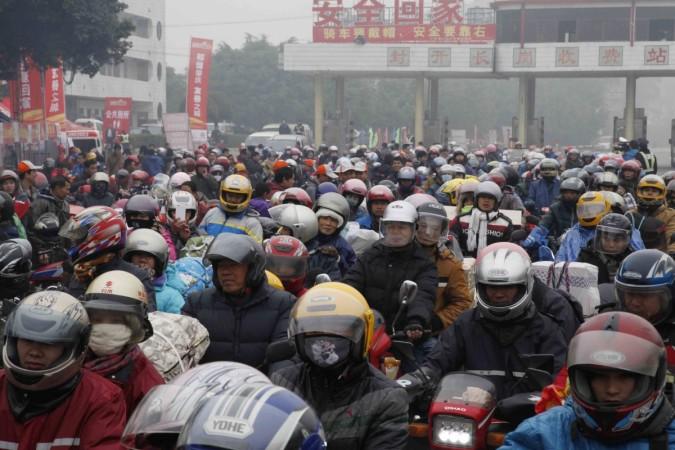
Hundreds of thousands of people across China are embarking on homecoming journeys as the Chinese Lunar New Year is just around the corner. The Year of the Wood Sheep will start on 19 February.
In what has been referred to as the world's biggest annual human migration, about three billion passenger trips will be made over the 40-day travel period as China celebrates the Spring Festival, notes Xinhua News Agency.
"The significance of the Chinese New Year is primarily familial — it is the one holiday that every member of the family will do his/her absolute best to return home to celebrate the end of the year with the entire family, akin to the American Thanksgiving, for family gathering and to give thanks, all of which centers around FOOD!" Lingchei Letty Chen, Professor of Modern Chinese language and Literature at the Washington University in St. Louis, told IBTimes India.
"Chinese New Year is meant to be celebrated for 12 days. Each day has its designated purpose of celebration, but together these 12 days have to do with reaching out to relatives and friends, among other domestic activities," She further said.
The extended public holiday that ends at 24 February is known as the Golden Week, although people will continue travelling before and after the holiday.
Also known as the Spring Festival, the huge celebration will begin with a large meal, called the "reunion dinner", on Wednesday, New Year's Eve.
Many other countries and places such as Taiwan, Singapore and Malaysia with ethnic Chinese population also celebrate the occasion. In Vietnam, the celebrations are called "Tet" and in South Korea it is known as "Seollal". In the Tibetan plateau and the kingdom of Bhutan, the holiday is called "Losar" – directly translated as "New Year".








